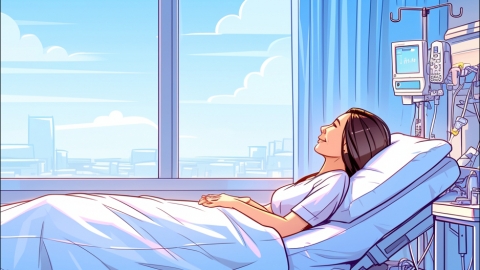Why do hemorrhoids occur after cesarean section?
Having hemorrhoids after a cesarean section may be caused by increased abdominal pressure during pregnancy, reduced activity postpartum, constipation, perianal infection, or thrombosed external hemorrhoids. Symptoms can be improved through posture adjustment, increased physical activity, and medication. However, if hemorrhoids prolapse, cause severe pain, or are accompanied by rectal bleeding, prompt medical attention is necessary.
1. Increased intra-abdominal pressure during pregnancy: As the uterus enlarges during pregnancy, it compresses pelvic blood vessels, obstructing venous return and causing congestion in the perianal veins. If this does not resolve promptly after cesarean delivery, hemorrhoids may develop, possibly accompanied by a sensation of anal heaviness or fullness. It is recommended to lie on your side after delivery to reduce pressure, avoid prolonged sitting or standing, and slightly elevate the hips to promote venous return.
2. Reduced activity after childbirth: Prolonged bed rest following surgery slows gastrointestinal motility and impairs blood circulation around the anus, worsening venous congestion and leading to hemorrhoids, often with anal discomfort. When physically able, it's advisable to get out of bed early and perform simple limb exercises to enhance blood circulation and stimulate bowel movements.

3. Constipation: Excessive postpartum tonics or insufficient dietary fiber intake can lead to difficult defecation. Straining during bowel movements increases abdominal pressure, triggering or exacerbating hemorrhoids, which may be accompanied by painful defecation and rectal bleeding. Under medical guidance, medications such as lactulose oral solution, glycerin suppositories (Kaisailu), or wheat bran fiber granules may be used to relieve symptoms.
4. Perianal infection: Inadequate perianal hygiene after delivery allows bacterial growth and inflammation, which stimulates congestion and swelling of the venous plexus, resulting in hemorrhoids accompanied by redness, swelling, and pain around the anus. Under medical supervision, treatments such as potassium permanganate solution, compound algininate cream, or cefaclor capsules may help alleviate discomfort.
5. Thrombosed external hemorrhoids: Rupture of perianal veins leads to bleeding and clot formation, causing sudden swelling and intense pain in hemorrhoids, affecting sitting and sleeping. Patients may use medications such as Ma Yinglong Musk Hemorrhoid Ointment, diosmin tablets, or ibuprofen sustained-release capsules under medical advice to relieve symptoms.
Maintain cleanliness and dryness of the perianal area, change breathable underwear frequently, eat a balanced diet rich in fruits and vegetables, drink plenty of water, establish regular bowel habits, and avoid straining during bowel movements to support recovery and reduce hemorrhoid-related issues.




